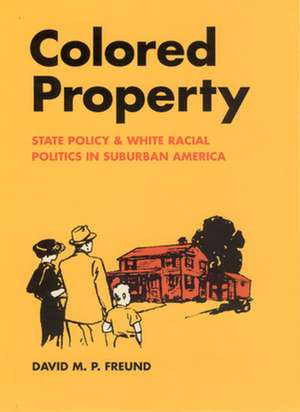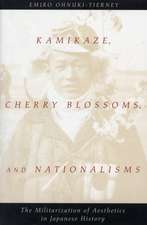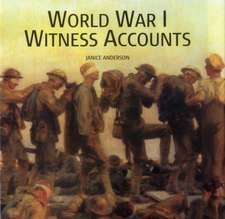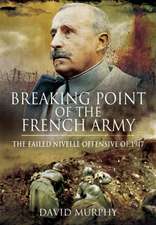Colored Property: State Policy and White Racial Politics in Suburban America: Historical Studies of Urban America
Autor David M. P. Freunden Limba Engleză Paperback – 15 mai 2010
Din seria Historical Studies of Urban America
-
 Preț: 224.93 lei
Preț: 224.93 lei -
 Preț: 214.32 lei
Preț: 214.32 lei -
 Preț: 153.89 lei
Preț: 153.89 lei -
 Preț: 203.12 lei
Preț: 203.12 lei -
 Preț: 132.84 lei
Preț: 132.84 lei -
 Preț: 201.35 lei
Preț: 201.35 lei -
 Preț: 196.41 lei
Preț: 196.41 lei -
 Preț: 200.74 lei
Preț: 200.74 lei -
 Preț: 178.45 lei
Preț: 178.45 lei -
 Preț: 185.70 lei
Preț: 185.70 lei -
 Preț: 215.22 lei
Preț: 215.22 lei -
 Preț: 185.94 lei
Preț: 185.94 lei -
 Preț: 205.71 lei
Preț: 205.71 lei -
 Preț: 348.08 lei
Preț: 348.08 lei -
 Preț: 283.69 lei
Preț: 283.69 lei -
 Preț: 245.49 lei
Preț: 245.49 lei -
 Preț: 264.85 lei
Preț: 264.85 lei -
 Preț: 233.25 lei
Preț: 233.25 lei -
 Preț: 218.74 lei
Preț: 218.74 lei -
 Preț: 325.05 lei
Preț: 325.05 lei -
 Preț: 247.23 lei
Preț: 247.23 lei -
 Preț: 246.09 lei
Preț: 246.09 lei -
 Preț: 277.90 lei
Preț: 277.90 lei -
 Preț: 273.67 lei
Preț: 273.67 lei -
 Preț: 290.90 lei
Preț: 290.90 lei -
 Preț: 192.30 lei
Preț: 192.30 lei -
 Preț: 261.59 lei
Preț: 261.59 lei -
 Preț: 310.30 lei
Preț: 310.30 lei -
 Preț: 227.36 lei
Preț: 227.36 lei -
 Preț: 283.30 lei
Preț: 283.30 lei -
 Preț: 246.86 lei
Preț: 246.86 lei -
 Preț: 260.82 lei
Preț: 260.82 lei -
 Preț: 275.92 lei
Preț: 275.92 lei -
 Preț: 241.19 lei
Preț: 241.19 lei -
 Preț: 273.80 lei
Preț: 273.80 lei -
 Preț: 271.67 lei
Preț: 271.67 lei -
 Preț: 247.40 lei
Preț: 247.40 lei -
 Preț: 351.69 lei
Preț: 351.69 lei -
 Preț: 267.82 lei
Preț: 267.82 lei -
 Preț: 287.33 lei
Preț: 287.33 lei -
 Preț: 263.37 lei
Preț: 263.37 lei -
 Preț: 232.27 lei
Preț: 232.27 lei
Preț: 268.37 lei
Nou
Puncte Express: 403
Preț estimativ în valută:
51.35€ • 53.73$ • 42.66£
51.35€ • 53.73$ • 42.66£
Carte tipărită la comandă
Livrare economică 02-16 aprilie
Preluare comenzi: 021 569.72.76
Specificații
ISBN-13: 9780226262765
ISBN-10: 0226262766
Pagini: 526
Ilustrații: 13 halftones, 4 maps, 5 line drawings
Dimensiuni: 152 x 229 x 30 mm
Greutate: 0.71 kg
Editura: University of Chicago Press
Colecția University of Chicago Press
Seria Historical Studies of Urban America
ISBN-10: 0226262766
Pagini: 526
Ilustrații: 13 halftones, 4 maps, 5 line drawings
Dimensiuni: 152 x 229 x 30 mm
Greutate: 0.71 kg
Editura: University of Chicago Press
Colecția University of Chicago Press
Seria Historical Studies of Urban America
Notă biografică
David M. P. Freund is associate professor of history at the University of Maryland, College Park.
Cuprins
Acknowledgments
Chapter 1. The New Politics of Race and Property
Part I: The Political Economy of Suburban Development and the Race of Economic Value, 1910-1970
Chapter 2. Local Control and the Rights of Property: The Politics of Incorporation, Zoning, and Race before 1940
Chapter 3. Financing Suburban Growth: Federal Policy and the Birth of a Racialized Market for Homes, 1930-1940
Chapter 4. Putting Private Capital Back to Work: The Logic of Federal Intervention, 1930-1940
Chapter 5. A Free Market for Housing: Policy, Growth, and Exclusion in Suburbia, 1940-1970
Part II: Race and Development in Metropolitan Detroit, 1940-1970
Chapter 6. Defending and Defining the New Neighborhood: The Politics of Exclusion in Royal Oak, 1940-1955
Chapter 7. Saying Race Out Loud: The Politics of Exclusion in Dearborn, 1940-1955
Chapter 8. The National Is Local: Race and Development in an Era of Civil Rights Protest, 1955-1964
Chapter 9. Colored Property and White Backlash
List of Abbreviations
Notes
Index
Chapter 1. The New Politics of Race and Property
Part I: The Political Economy of Suburban Development and the Race of Economic Value, 1910-1970
Chapter 2. Local Control and the Rights of Property: The Politics of Incorporation, Zoning, and Race before 1940
Chapter 3. Financing Suburban Growth: Federal Policy and the Birth of a Racialized Market for Homes, 1930-1940
Chapter 4. Putting Private Capital Back to Work: The Logic of Federal Intervention, 1930-1940
Chapter 5. A Free Market for Housing: Policy, Growth, and Exclusion in Suburbia, 1940-1970
Part II: Race and Development in Metropolitan Detroit, 1940-1970
Chapter 6. Defending and Defining the New Neighborhood: The Politics of Exclusion in Royal Oak, 1940-1955
Chapter 7. Saying Race Out Loud: The Politics of Exclusion in Dearborn, 1940-1955
Chapter 8. The National Is Local: Race and Development in an Era of Civil Rights Protest, 1955-1964
Chapter 9. Colored Property and White Backlash
List of Abbreviations
Notes
Index
Recenzii
“David Freund appears to have ransacked the National Archives and has uncovered a treasure trove of documents that tell an incredible story as they detail behaviors, rationales, and values on the eve of the civil rights revolution. Ultimately, he shows that the American housing market was not simply exploited by racial interests; it was born of—and set up to serve—them.”
“Colored Property is a sophisticated analysis of the political construction of race. In this provocative examination of federal homeownership and finance programs, Freund shows how government intervention in the housing market reinforced racial differences but masked the consequences in the rhetoric of free choice. Richly detailed and rigorous, Colored Property gives the lie to the myth of colorblindness.”
“If we think of the study of race, residence, and urban policy as having been transformed long ago by Arnold Hirsch’s studies of the ‘second ghetto’ in Chicago, and more recently by Thomas Sugrue’s work on Detroit, Colored Property marks a third remaking of this critically important area of inquiry. Freund’s profound work insistently pursues the stories of white city-leavers into the suburbs and so fully links national trends with rich local examples.”
"A creative, vital entry point to explore the tangle of federal mortgage financing, housing reform, and deep-seated racism. . . . This well-written, much needed study brings together the realms of urban history, race relations, and economic opportunity."
"With evidence drawn from a variety of disciplines, Freund raises the standard for urban studies. . . . The successful balance among the individual decisions, racial bias, and economic policy that Freund achieves embodies the ideals of historical anlysis. . . . Colored Property is crucial reading for historians and educators studying the recent past of the metropolitan Midwest. It is also an invaluable work for researchers interested in the expansion of American subuirbs in the twenteth century."
"Freund has produced an important book and one likely to become required reading for all students of urban history and federal public policy."
"[Freund's book] unravels the ties that bound (and bind) race and property, and, in the process, shows how that linkage altered white racial ideals and politics in postwar America."
"Every historian of twentieth-century United States will certainly have to reckon with Colored Property. The study paves the way for new understandingss of everything from the evolution of white racial ideology and federal policy after 1910, to the ways in which the politics of race shaped the postwar Democratic Party, to the reasons why the Detroit metropolitan area today has the highest segregation index in the country. That is no small accomplishment."
"Beware! Colored Property might very well outrage some readers. Whether or not it does . . . it deserves a key place in the historical and sociological scholarship of metropolitan America. . . . Unquestionably Colored Property is a most compelling volume to read and to contemplate. Its scholarship is prodigious. Its findings are searing. Surely this book is destined to exert enduring influence. It is required reading for a multiplicity of audiences, including historians, social scientists, legal scholars, journalists and policy makers."









